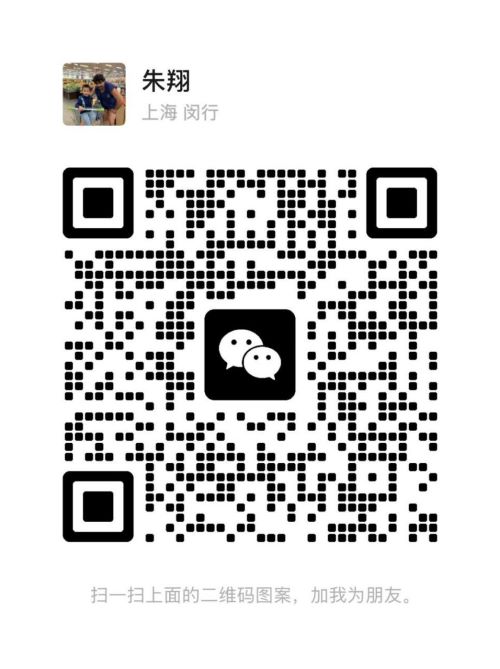Before we begin the main topic, please take a moment to review the recent case treated by Dr. Zhu. If there is any need, please contact.
Case 1
Before and after the Lunar New Year, Dr. Zhu helped a continuous stream of patients with anorectal diseases. The typical symptoms included bleeding during bowel movements or blood in the stool, prolapse of hemorrhoids (swellings or flesh lumps around the anus), anal itching, and pain. Some patients also experienced itching or pus discharge from the skin around the "chrysanthemum" (a colloquial term for the anus). These symptoms may be related to the particularly hot summer in Perth this year or changes in dietary habits during the Spring Festival, coupled with irregular routines. For issues with the "chrysanthemum," Dr. Zhu employed a comprehensive treatment approach including internal medication, fumigation therapy, external application, and acupuncture to promote local blood circulation and drug penetration, thereby achieving the effects of clearing heat and detoxifying, and resolving dampness and swelling. This approach has allowed most patients to avoid the distress of surgery.
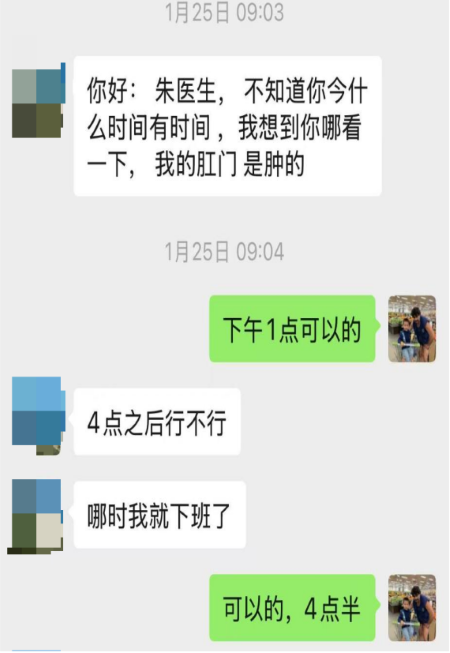
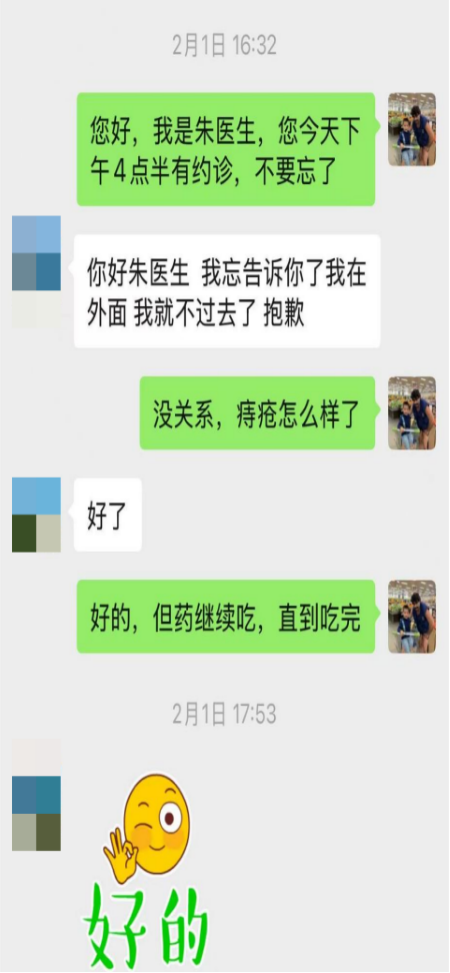
( Some pictures are from the Internet. If there is any infringement, please contact us to delete ,Thank you.)
Case 2
A cancer patient experienced significant side effects after radiotherapy, including hearing loss, dry mouth, and insomnia. Dr. Zhu believes that the damage caused by radiotherapy is a form of thermal injury, damaging the oral and pharyngeal mucosa as well as the salivary glands. This is akin to the invasion of "heat evil" in traditional Chinese medicine (TCM), where internal and external heat toxins combine, causing fire to scorch the body fluids and damage the vital energy, leading to a deficiency of both qi and yin in the body. Clinically, this often manifests as dry mouth, pharyngeal dryness and pain, and difficulty swallowing, among other symptoms of yin deficiency and internal heat. Consequently, Dr. Zhu used a modified version of the classic TCM formula "Shengmai Powder" to nourish yin and clear heat, promote the production of body fluids, moisten the throat, strengthen the spleen and stomach, and detoxify. The patient's symptoms were significantly alleviated, and the entire course of radiotherapy was completed successfully. After treating a considerable number of tumor patients, Dr. Zhu found that TCM, especially Chinese herbal medicine, can significantly alleviate the toxic side effects of surgery and chemotherapy in many patients, ensuring that they can complete their radiotherapy and chemotherapy courses safely and smoothly.
Getting back to the main topic, Dr. Zhu recently treated a patient like this:
The patient was a young boy in the lower grades of elementary school. The mother described that since entering CC (Child Care), the child often had conflicts with classmates, showing characteristics of strong aggression and impulsive capriciousness.
During group games, the child was unable to wait patiently, often participating and then disrupting, and would fight when he didn't get the results he wanted. In the classroom, the child had difficulty following discipline, often playing with his fingers, fiddling with learning tools, or talking non-stop, making strange sounds, and even leaving his seat to walk around at will.
Especially evident in his learning and gaming processes was the difficulty in concentrating, always starting strong and ending weak, writing homework one moment and playing the next, with sloppy handwriting, often copying the wrong questions, and frequently losing study supplies. His academic performance was lagging, and his physical education grades were also unsatisfactory.
The teachers at school had tried various educational methods, but the child remained inconsistent. Some teachers gradually lost confidence in him, and as long as he didn't seriously affect the classroom, they let him be. Every time the child made a mistake, he would be criticized, asked to apologize, or make a self-reflection, but he would still repeat the same behavior afterward.
Previously, the child had been treated with Western medicine, but with little effect, and then he switched to Traditional Chinese Medicine treatment.
Based on the child's symptoms and syndrome type, Dr. Zhu used Wen Dan Tang for symptomatic treatment. After a week of follow-up, the child's symptoms had improved, with longer periods of concentration and much calmer emotions. The original prescription was continued, and the dosage of some medications was appropriately adjusted. After three months of conditioning, the child was basically cured and had no further relapses.
What is Attention Deficit Hyperactivity Disorder (ADHD) in children?
Attention Deficit Hyperactivity Disorder (ADHD), also known as Attention Deficit Hyperactivity Disorder, is a common neurobehavioral disorder among children. Its main symptoms include inattention, frequent activity in inappropriate situations, and emotional impulsivity. Sometimes, it is accompanied by cognitive disorders and learning difficulties, but intelligence is usually normal. Therefore, parents should not consider ADHD as a sign of stupidity; some geniuses were ADHD as children. The prevalence of ADHD among children worldwide is 7.2%, with an incidence rate of 11% in Australia, but the incidence rate for Chinese children is 6.2%.
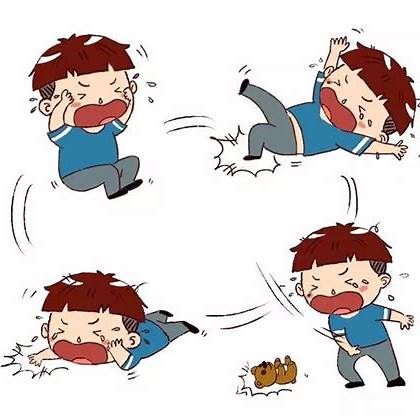
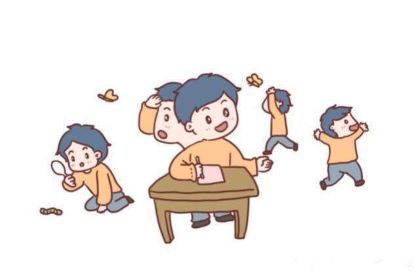
( Some pictures are from the Internet. If there is any infringement, please contact us to delete ,Thank you. )
Modern medicine believes that ADHD may be related to genetic, neurophysiological, immune, and environmental factors (the pathogenesis is unclear). Western medicine commonly uses psychiatric drugs such as methylphenidate hydrochloride to treat this condition, but these drugs are not suitable for young children, and their adverse effects also make doctors particularly cautious when choosing to use them in clinical practice.
Traditional Chinese Medicine attributes the symptoms of these children to restlessness and forgetfulness, and considers that the occurrence of ADHD is often due to congenital deficiency, cerebral marrow emptiness, and emotional nourishment deficiency, leading to a yin-yang imbalance in the body.
How should children diagnosed with ADHD be treated?
Dr. Zhu selects oral Chinese medicine as the first option, because this method is safe and effective. Most children with ADHD are not suitable for acupuncture or moxibustion treatment due to their hyperactivity and emotional instability. With the deepening of research on hyperactivity disorder and the integration of traditional Chinese medicine dialectics, it is now possible to classify most ADHD into five types of syndromes, which makes it easier for parents to make a simple distinction based on their children's daily behavior. Each syndrome type has a corresponding treatment method. If necessary, an appointment can be made to visit the outpatient clinic for timely intervention.
Syndrome of Excessive Heart and Liver Fire: If a child exhibits symptoms such as hyperactivity, excessive talking, impulsiveness,任性, irritability, rashness, acting recklessly, being prone to disturbing others, scattered thoughts, red face and eyes, a loud voice, constipation, and yellow urine, with a red tongue or red tip of the tongue.
Syndrome of Phlegm-Fire Disturbing the Heart: If a child shows signs of mania and restlessness, impulsiveness, difficulty in calming down despite talking a lot, changing interests frequently, feeling hot and uncomfortable in the chest, restlessness in sitting or lying down, difficulty falling asleep, constipation with red urine, and a red tongue with yellow and greasy fur.
Syndrome of Yin Deficiency in the Liver and Kidneys: If a child has symptoms including hyperactivity with difficulty in staying still, occasional impulsiveness, irritability, scattered thoughts, poor memory, procrastination in homework, falling behind in academic performance, night sweats, bedwetting, and experiencing frequent dreams and little sleep.
Syndrome of Deficiency in Both Heart and Spleen: If a child has poor memory, falling behind in academic performance, hyperactivity without aggression, incomplete actions, fatigue, a thin or overweight body, a dull complexion, spontaneous sweating, picky eating with poor appetite, and restless sleep.
Syndrome of Liver Qi Stagnation and Depression: If a child cannot concentrate, has scattered thoughts, excessive fidgeting, irritability and anger, impulsiveness,任性; a thin body, fatigue, a dull complexion, poor appetite, feeling cold in the hands and feet, bloating in the stomach and abdomen, and a lack of warmth in the extremities.
If a minority of children are willing to cooperate with acupuncture therapy, Dr. Zhu primarily recommends filiform needle treatment. Dr. Zhu generally selects acupoints on the hands and feet (Taichong and Sanyinjiao), which are both safe and effective.
What is Tourette's Syndrome in children?
In daily life, if a child suddenly exhibits frequent blinking, pouting, nose-sucking, head-shaking, shoulder-shrugging, or making noises, parents should pay attention. This may not be a "bad habit" of the child. In fact, it could very well be "Tourette's Syndrome"! The common age of onset is between 3 to 15 years old, with boys being more affected than girls. The exact cause of the condition is not yet fully understood, but it may be related to imbalances in brain neurotransmitters, neurological anatomy, and abnormalities in brain circuits. Dr. Zhu has noticed that since the COVID-19 pandemic, the incidence of Tourette's Syndrome in children has been increasing year by year, which may also be related to immune system abnormalities.
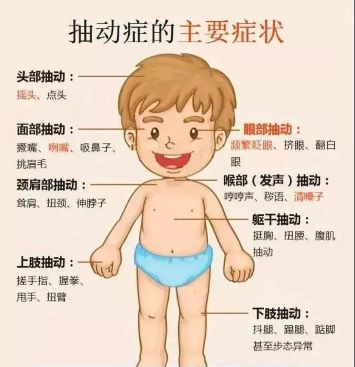
( Some pictures are from the Internet. If there is any infringement, please contact us to delete ,Thank you. )
In traditional Chinese medicine, pediatric Tourette's syndrome is classified under the categories of "slow convulsions," "liver wind," "convulsions," and "spasms." Traditional Chinese medical theory holds that the disease is closely related to wind and phlegm, with the primary location being the liver, and it is also closely related to the heart, spleen, and kidneys. The main pathogenesis involves the hyperactivity of liver wind and the internal accumulation of phlegm.
Unlike ADHD, Dr. Zhu has found in clinical practice that acupuncture treatment for this condition has definite therapeutic effects, with good safety and no side effects, and therefore it is the preferred treatment. By soothing the liver and resolving depression, calming the mind and strengthening the will, acupuncture improves children's motor and vocal tics, enhances their gastrointestinal function, increases their sleep quality and concentration, thereby helping to improve academic performance.
For children who are afraid of acupuncture, Dr. Zhu adopts pediatric tuina therapy, such as tonifying the spleen meridian by pushing from the radial side of the thumb tip towards the base 100-300 times to strengthen the spleen and stomach and nourish qi and blood; and clearing the liver meridian by pushing from the base of the last joint of the index finger towards the tip along the spiral surface 100-300 times to calm the liver and reduce fire.
Of course, Tourette's syndrome is a chronic neurodevelopmental disorder, and for some children, symptoms gradually alleviate as the nervous system matures. For children with less noticeable symptoms, parents should pay attention to the following aspects:
1. Do not pay attention, pretend not to see, and even more, do not remind, scold.
2. Avoid certain foods and focus on nutritional supplements, especially avoiding foods that stimulate the nervous system, such as coffee, chocolate, fried chicken, milk tea, carbonated drinks, etc.; consume more meat and vegetables.
3. Reduce the use of electronic devices and explore and cultivate positive hobbies.
4. The most important is outdoor activities, ensuring at least 2 hours of activity time every day.
5. Ensure sufficient sleep (try to sleep at 21:00 and ensure 8 hours of sleep time), and do not apply excessive pressure.
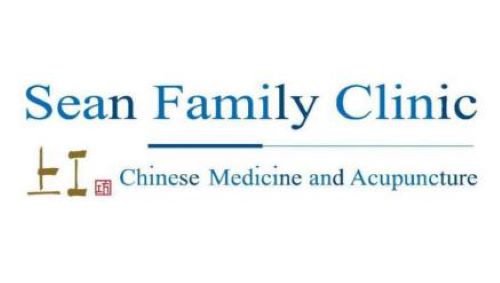
Open Time: Monday-Sunday(9:00-18:00)
Address: Suite 5, 143-147 Somerville Boulevard, Winthrop WA 6150 Tel:(08) 62690917
Website: www.seanfamilyclinic.com
Mobile:0432917382
Wechat:
